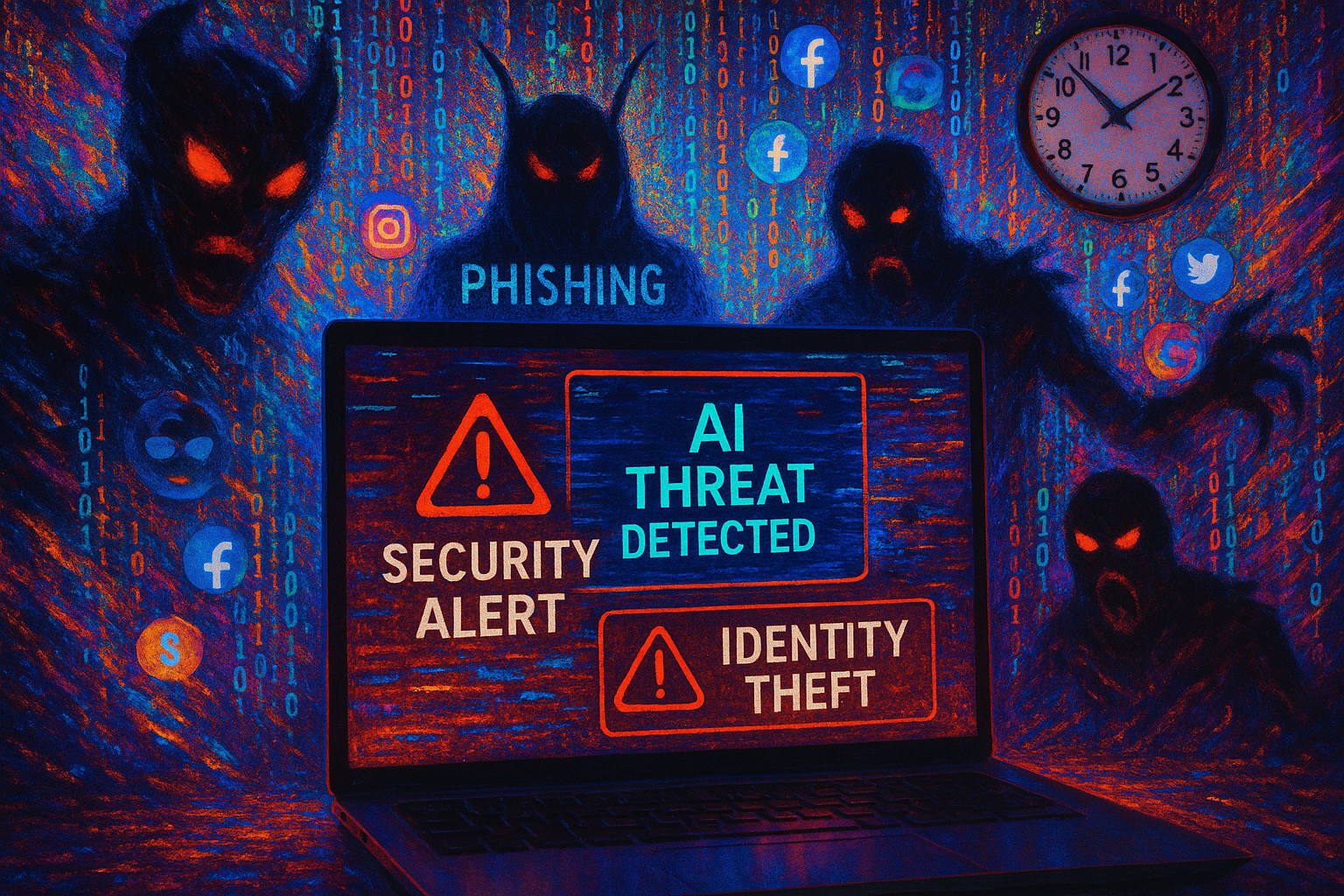5 min read
Meeting the New, AI-Enabled Face of Risk
When we introduced our OmniNet Bridge solution in 2014—known to many of you as My Digital Shield—it represented the next generation of network...

Social media is a great way to connect with friends, family, and businesses. You can keep up-to-date with your cousin's engagement or browse exciting news, breaking by the minute. But, social media is not without its risks. Connecting our profiles with various online "friends" opens our information up to a huge group of digital users who might be trying to use it maliciously. Additionally, it makes us "public figures" and puts our online behavior and speech directly in the spotlight. Add to that the fact that the average social media user is getting younger and younger, and we have a situation where the whole family, parents and kids, must be working together to protect each other and ensure safety while online.

When drafting a social media policy for your family, take a collaborative approach. Prepare by considering the following questions and issues to have a discussion amongst the entire family, where each person can voice their thoughts and have ownership in the results. Have a goal of documenting and signing the policy agreement in order to formalize the process and expectations.
The two key elements to a successful agreement are:
Make individual behavior accountable.
Protect and monitor online presence as a family.
Our children will live their entire lives as digital citizens. What defines a good digital citizen? We have manners and protocol in our "real" lives, what about the family's expectations for "webiquette"? Behavior online is as apparent and consequential as behavior offline, if not more so, so it's important for the family to agree on what is acceptable and not acceptable as family members. Perhaps as a starting point, ask what would embarrass one another in terms of online behavior, and how you would feel in the event of it actually happening.
Cyber-bullying affects 1 of 15 youngsters, and the potential consequences can be devastating. Talk with your kids about what it looks like and what to do if they see or experience it.
Stress the connection between our "real" lives and our "virtual" version. The distinction continues to narrow with time, and now our actions on social media have a bearing on everything we do, including our school and work lives. Talk about how inappropriate behavior can adversely affect future academic acceptance and employment applications.
Discuss the importance of one's identity and how hard it is to recover in the case of identity theft. Teens and seniors are top targets for identification thieves that use the information in order to commit cyber-crimes such as credit and tax fraud.
Define the boundaries for everyone's actions, across all social media platforms. This set of boundaries should apply to all things online, with no exceptions.
Set up Google alerts for the family and take turns being the one responsible for monitoring and reporting back to the family.
If something doesn't feel right, talk about it. When it comes to the stakes of being online, intuition counts for more than self-doubt.
A good way to frame your family's social media policy is to create a list of Social Media 10 Commandments; a defined set of rules that everyone must follow. They help lay things out clearly and leave little room for ambiguity in online activities. We've included our own Social Media 10 Commandments below. Feel free to use them as a starting point for your family.
1) Set rules around spending and making any financial transactions online. Many families disallow online spending altogether, on behalf of the children.
2) Define limits around profane words and images.
3) No online bullying or threats.
4) Do not take someone else’s images or words as your own, and never spam.
5) Always protect the privacy of your family, friends, coworkers, teachers, neighbors, and those around you, including when deciding to tag someone.
6) We will know of all accounts, and no new accounts are to be created without our permission.
7) Set online time limits and offline schedules.
8) Phone-free zones – dinner table, restaurants.
9) Never argue or fight online.
10) You will OWN everything you do online; it goes one way, and you can't get it back.
We collaborated with Merrill Lynch/Bank of America to produce the white paper "Keeping Your Family Safe in the Digital Age"
 Click here to download "Keeping Your Family Safe in the Digital Age".
Click here to download "Keeping Your Family Safe in the Digital Age".
 Contact us for more information, including Speaking, Training, and Workshops.
Contact us for more information, including Speaking, Training, and Workshops.

5 min read
When we introduced our OmniNet Bridge solution in 2014—known to many of you as My Digital Shield—it represented the next generation of network...

9 min read
Over the past decade writing these letters, I’ve made it my mission to help you navigate the digital age with confidence and resilience. If I have...

4 min read
For generations, family offices and ultra-high net worth families have mastered the art of estate planning — preserving wealth, ensuring succession,...